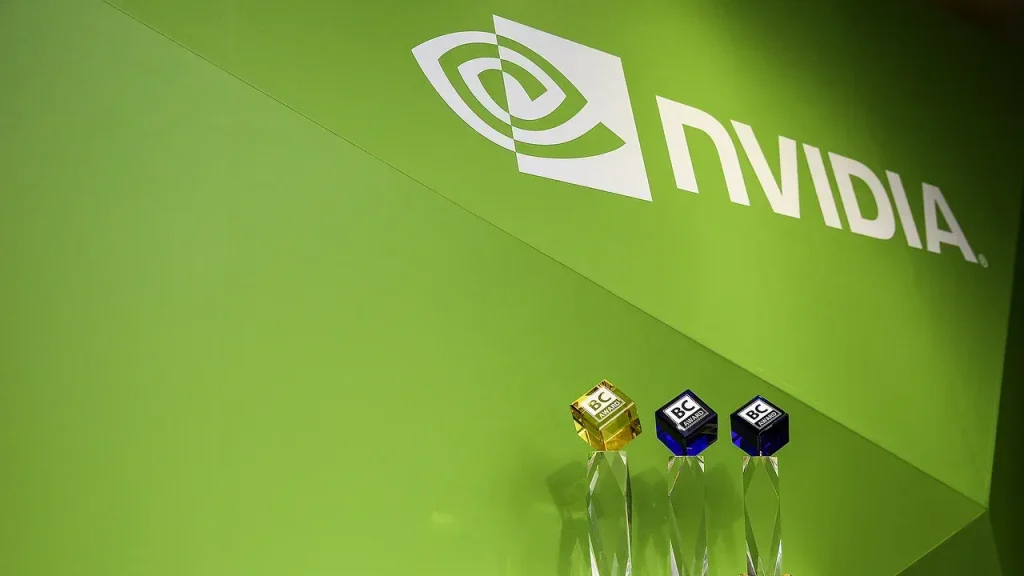Nvidia’s market cap has reached a historic milestone, now exceeding $4 trillion and making it the first company to achieve this remarkable feat. This landmark achievement comes at a time when Nvidia’s stock performance is garnering attention, especially with CEO Jensen Huang set to meet President Trump at the White House. Such a high market cap not only signifies Nvidia’s dominance in the tech industry but also highlights the implications of geopolitical factors, including recent AI chip export controls enforced during the Trump administration. Trump’s remarks on social media reflect a clear optimism regarding Nvidia’s rise and its contribution to the U.S. economy. As discussions unfold in Washington, the intersection of corporate success and political climate continues to shape the narrative around Nvidia’s future.
The market capitalization of Nvidia has recently garnered significant attention, reflecting the company’s swift ascent in the technology sector. As it recently surpassed the $4 trillion mark, the implications of this achievement go beyond financial metrics, intertwining with critical discussions about artificial intelligence and regulatory frameworks. With the meeting between President Trump and CEO Jensen Huang on the horizon, various stakeholders are eagerly watching Nvidia’s stock trajectory amidst ongoing export restrictions on AI chips. Furthermore, the dialogue surrounding trade policies and tariffs becomes increasingly relevant, especially in light of the Trump administration’s approach to national security. As the tech landscape evolves, Nvidia’s financial standing illustrates the potent mix of innovation and policy.
Nvidia’s Historic $4 Trillion Market Cap
Nvidia has achieved a remarkable milestone by becoming the first company in history to surpass a market cap of $4 trillion, a feat that places it ahead of tech giants like Apple and Microsoft. This significant achievement not only highlights Nvidia’s dominance in the semiconductor industry but also reflects the growing importance of artificial intelligence (AI) and machine learning technologies in the global economy. Analysts attribute this surge to the increasing demand for AI chips, with strategic investments and innovations positioning Nvidia at the forefront of the AI revolution.
The remarkable climb in Nvidia’s stock performance has been met with enthusiasm from investors and industry experts alike. With President Trump acknowledging the company’s rise in his social media remarks, the connection between government policy and market dynamics is evident. Trump’s administration’s trade tariffs and export controls have played a pivotal role in shaping the landscape in which Nvidia operates, contributing to an environment where technological advancements are both celebrated and scrutinized.
Frequently Asked Questions
What is Nvidia’s current market cap and how does it relate to AI chip export controls?
As of July 2025, Nvidia has surpassed a market cap of $4 trillion, becoming the first company to achieve this milestone. This significant valuation comes amidst ongoing challenges regarding AI chip export controls imposed by the U.S. government, which have implications for Nvidia’s ability to operate in markets like China.
How has Trump’s tariffs impacted Nvidia’s stock performance and market cap?
Since the implementation of Trump’s tariffs, Nvidia’s stock performance has surged, recording a 47% increase. This boost in stock price has significantly contributed to Nvidia achieving a $4 trillion market cap, highlighting the intersection of government policy and market dynamics.
What was the significance of the meeting between Trump and Jensen Huang regarding Nvidia’s market cap?
The meeting between President Trump and Nvidia CEO Jensen Huang is significant as it coincides with Nvidia’s market cap exceeding $4 trillion. It reflects the government’s interest in Nvidia’s growth and the broader implications of U.S. policies on the burgeoning AI industry.
What are the potential consequences of AI chip export controls on Nvidia’s market cap?
AI chip export controls pose a serious risk to Nvidia’s market cap as the company may miss out on approximately $8 billion in planned orders due to restrictions on selling to markets like China. Such constraints could hinder Nvidia’s growth and affect its overall valuation.
How does Nvidia’s market cap compare to other tech giants like Apple and Microsoft?
Nvidia’s recent surge to a market cap of over $4 trillion places it ahead of other tech giants such as Apple and Microsoft, marking a significant milestone in the tech industry and showcasing the increasing importance of AI and semiconductor technology.
What are the future implications of Jensen Huang’s meeting with Trump for Nvidia’s market cap?
The outcome of Jensen Huang’s meeting with Trump might lead to new policies affecting Nvidia’s operations and market cap, particularly in relation to easing export controls on AI chips. Such developments could either boost Nvidia’s market position or present further challenges in the coming years.
| Key Point | Details |
|---|---|
| Meeting at the White House | Jensen Huang, CEO of Nvidia, will meet President Donald Trump amid Nvidia’s rising stock prices. |
| Nvidia’s Market Cap | Nvidia achieved a market cap exceeding $4 trillion, surpassing Apple and Microsoft. |
| Trump’s Remarks | Trump praised Nvidia’s stock performance, noting a 47% increase since the tariffs were imposed. |
| Export Controls | Nvidia faces challenges due to U.S. government export controls on its AI chips, particularly regarding the Chinese market. |
| Financial Impact | Nvidia projected a loss of $8 billion in planned orders for its H20 processor due to these controls. |
| Future Regulations | New export restrictions on AI technology are anticipated to be introduced by the Trump administration. |
Summary
Nvidia’s market cap has surpassed a remarkable $4 trillion, making it the first company to achieve this milestone. This significant event underscores Nvidia’s robust position in the tech industry, particularly in AI technology, despite challenges posed by export controls. The upcoming meeting between Jensen Huang and President Trump could lead to significant discussions on regulatory frameworks affecting Nvidia’s operations, potentially shaping the landscape of the AI market further.

